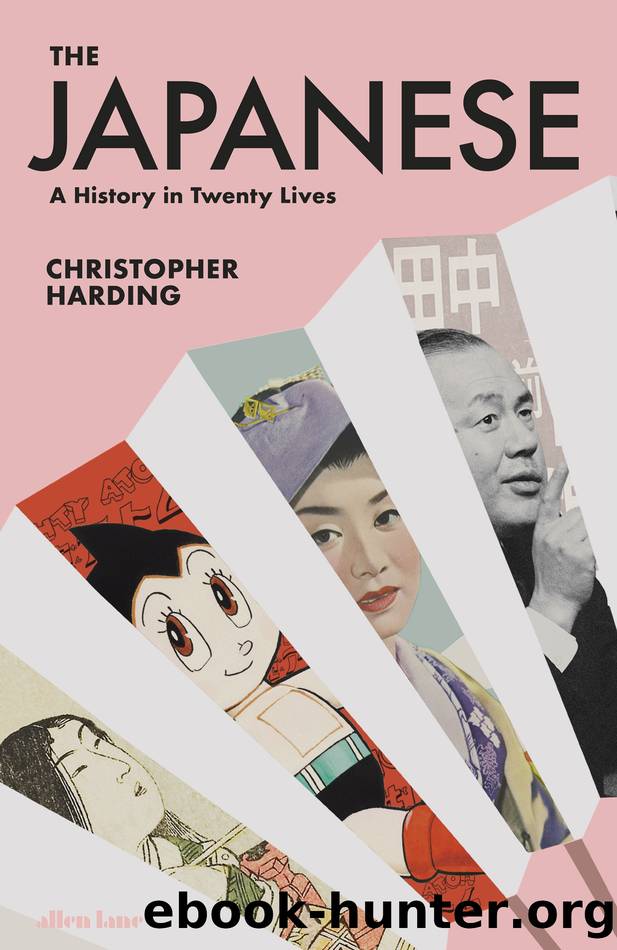The Japanese by Christopher Harding

Author:Christopher Harding [Harding, Christopher]
Language: eng
Format: epub
ISBN: 9780141992297
Publisher: Penguin Books Ltd
Published: 2020-10-06T00:00:00+00:00
Composed by a former student of Tsudaâs, Hiratsuka RaichÅ, this was the opening salvo in a war that Tsuda had always counselled her girls against fighting. Back in 1902, she had established her own household, legally freeing herself of her fatherâs influence and altering her name from âUmeâ to âUmekoâ. (Ko, meaning âgirlâ or âprincessâ, had been used for centuries by women of noble rank in Japan. Free, in the Meiji era, to change their own names, many commoner women chose it for themselves.) But Tsuda still cherished Japanâs old cooperative ethic, within families and across society, and hoped to see women reform it from within. Hiratsuka preferred to attack it. She mounted an assault on unequal marriage (which rendered women âslaves during the daytime and prostitutes at nightâ), on the demeaning terms of the Civil Code, and on the kind of life-limiting domesticity peddled not just in schools but by magazines like Womanâs Friend (Fujin no Tomo). Such publications were stuffed full of tips on housekeeping and cookery alongside adverts for products designed to confirm the kitchen as a womanâs natural sphere, from handy stand-up workspaces to gas-burning rice cookers. Japanâs first department store, Mitsukoshi, opened in 1904 in Nihonbashi, bringing magazine adverts to life and promoting a tie-up of commerce and conservative social values that helped to define womenâs lives for many years to come.
Hiratsuka wanted women to read journals like hers instead. Bluestocking (SeitÅ) featured âIn the beginningâ in its very first issue, reminding people that whatever the Civil Code might say, Japanâs origins lay not with a man but with a Sun Goddess. Tsuda was willing to acknowledge that the associated literary group, SeitÅsha (Bluestocking Society), was home to some âcleverâ writers. But she denounced the likes of Hiratsuka nonetheless as âimmoralâ, âlawlessâ â even as âagents of the devilâ â for promoting ideas that were âforeignâ to Japan.
Despite their differences, Tsuda and Hiratsuka were similar in that they both targeted women of relatively high social status, and found liberation in the life of the mind. Elsewhere in Japan during these same years, sorrier circumstances were pushing women towards more radical solutions. One of the dark sides of the great industrial strides made thanks to men like Shibusawa was the treatment of textile workers. Many were young girls, recruited to live and work in factory-dormitory complexes in return for an up-front payment to their parents. Songs of the time told of harsh conditions: twelve-hour shifts worked at pace, meals of rice mixed with sand, pay deductions for the smallest infraction, violence and sexual abuse. Some girls ran away. Others pressed on, their music and writings revealing them as unlikely recruits to Shibusawaâs mutual-aid model of labour relations: âLetâs wrench the balls of the hateful men!â; âBosses are vipers, our bitterest enemiesâ.
Socialism and anarchism flourished amongst some of these women, giving rise in 1910 to a failed attempt on the Emperorâs life. A woman called Kanno Sugako had been due to throw the first bomb. She used
Download
This site does not store any files on its server. We only index and link to content provided by other sites. Please contact the content providers to delete copyright contents if any and email us, we'll remove relevant links or contents immediately.
Papillon by Henry Charrière(793)
Watercolor With Me in the Forest by Dana Fox(589)
The Story of the Scrolls by The Story of the Scrolls; the M(556)
This Is Modern Art by Kevin Coval(456)
A Theory of Narrative Drawing by Simon Grennan(453)
Frida Kahlo by Frida Kahlo & Hayden Herrera(445)
Boris Johnson by Tom Bower(442)
Banksy by Will Ellsworth-Jones(434)
AP Art History by John B. Nici(428)
Van Gogh by Gregory White Smith(425)
Draw More Furries by Jared Hodges(422)
The Art and Science of Drawing by Brent Eviston(421)
Glittering Images: A Journey Through Art From Egypt to Star Wars by Camille Paglia(416)
Scenes From a Revolution by Mark Harris(411)
War Paint by Woodhead Lindy(411)
100 Greatest Country Artists by Hal Leonard Corp(391)
Ecstasy by Eisner.;(386)
Young Rembrandt: A Biography by Onno Blom(371)
Theater by Rene Girard(354)
